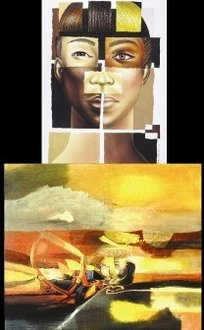A commentary on why more IC students should take CSCRE classes

Image Courtesy of CSCRE
I remember little else about the day we registered for classes freshman year but my sweaty palms. Determined to get into an International Relations course, I was disappointed to see every class section full. The sunny woman who was in charge of helping me register clicked buttons and entered important codes but ultimately decided that, no, International Relations was not in the cards for me. “Hey, there’s this one class called Intro to African Diaspora … that sounds international. Why don’t we put you in that?” These problematic words set my experience with the Center for the Study of Race, Culture and Ethnicity all in motion.
Now, looking back at my past four years, I have been constantly overwhelmed by the collective intellect, dedication and compassion housed in the Center. Consistently overlooked, particularly by white students, this corner of campus is responsible for some of the most challenging, painful and empowering ideas I have ever grappled with. I didn’t expect my courses to engage me so intensely or personally. As a white, middle-class student at an elite liberal arts school, I thought that all I had to do was listen, go to class, make some friends and graduate. I felt entitled to this education but not particularly aware of its importance or its possibilities. As I prepare to pack up my boxes and leave Ithaca, I can’t help but wonder: where would I be if I hadn’t accidentally stumbled into that class in freshman year?
I came to school as a closeted gay kid with no real concept of my position in the world and no words to articulate those things that I did not understand. The courses and people in the Center held me accountable as a person and demanded that I investigate my own place in history. Through the courses in my African Diaspora minor, I faced the pain of denying my own sexuality and the horror of beginning to learn about structural racism in our country at the same time. I learned that these grievances are interconnected.
Four years later I am still at the very beginning of a journey, but I have replaced my shame, fear and ignorance with empowerment, resolve and some semblance of awareness. So much of this thanks to my professors and the students in my African Diaspora courses.
This is not meant to be some bemoaned sob story about how tragic and important I am for having begun to grapple with my whiteness or my own sexuality. Actually, I am a small part of the story. But what I wonder is, how many students will pass through the walls of this institution never having truly understood the privilege of their education? Lacking the fortuitous scheduling confusion that might land them in Introduction to African Diaspora, how many privileged white students will jump in those IC fountains at graduation without having interrogated their own identity or considered that they, too, are a part of this history?
The answer to these questions is that I will never know, nor do I really need to. It is not my duty, nor is it the duty of those brilliant professors who work in the Center, to “save” others from their own ignorance. And so it is with awe and respect that I thank these professors for the patience they have shown me anyway, for allowing me a glimpse of what a real education might consist of and for continuing the work that is important but not easy. And it is with hope and, sure, a little bit of a Senior-ority complex, that I urge the incoming classes of IC students to take a class in the Center. Come on. Give it a try. If you take one and don’t like it, I’ll personally buy back your textbooks.
So as I continue to welcome the waves of nostalgia that I know will come over these next few weeks, I do so with a small grain of comfort. If I leave this school with nothing but the community I have gained from my experiences in the Center, with the conversations that have empowered me and also those that have made me cry, with the endless admiration and respect I have for these professors, and with the humility and sense of empowerment I have learned from them, then that’d be just fine.
Daniel Sitts is a senior cinema and photography major who will jump into the IC fontains a little bit wiser. Email him at dsitts1@ithaca.edu.
